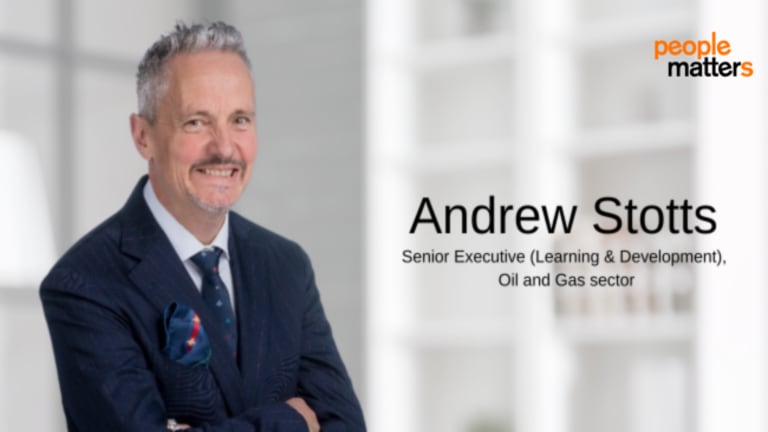
L&D leader Andrew Stotts on Middle East’s talent needs
SkillingPerformance ManagementTalent Management#EmployeeExperience#HRCommunity#Outlook2024
Andrew Stotts is a Senior Executive in Learning and Development within the Oil and Gas sector. With extensive experience, he has held key roles in esteemed organisations across the Middle East, such as Etihad Airways, Alshaya Group, Kout Food Group, and Hilton Group. Currently, he serves as the Chief Learner at Weird Human, a platform offering innovative, enjoyable, and impactful learning solutions.
In an exclusive interaction with People Matters, Andrew shared insights into the talent landscape of the Middle East, focusing on its current needs, skills gap, and the role of HR in bridging the gap between talent needs and business sustainability goals.
Here are the edited excerpts:
Understanding the current talent landscape in the Middle East
Defining the regional talent landscape, Andrew says, “The GCC is now becoming a magnet for the world's talent, and by drawing on that incredibly vibrant and diverse population, the region is on the move. This makes it more challenging for candidates to be seen, as competition is fierce. As a candidate, make sure that you’re the best fit for roles that you’re targeting. The days of a standard CV and application letter are long gone. Think carefully about what recruiters are looking for and make sure that you carefully match your skills and experiences to these needs.”
Skills requirements of the Middle East workforce
The workforce in the Middle East needs to align with global trends. Bridging this gap requires understanding the needs of talent and aligning them with business goals. Identifying the current talent needs in the region, Andrew says, “A continued shift to what I like to call the ‘Power Skills’ – Behaviours like relationship building (Customer Service), negotiation skills, business writing, influencing, listening, and asking questions, and the mastery of EQ are all areas that are in high demand from employers.”
How can HR leaders address these requirements effectively?
“What I am seeing is that we’re able to pick from a much richer tapestry of talent. I continue to be involved in the wholesale development of these needs across all employment levels,” answers Andrew.
Top of the HR agenda in 2024
In recent years, the role of HR has evolved from mere people management to a data-driven, innovative, and strategic function essential for business sustainability. To keep pace with global trends, HR and talent professionals in the Middle East also need to align their agenda for the future. However, how should they prioritise their tasks for the year ahead? “Change”, says Andrew. Adding, “The constant change and predicting the direction of employee needs in the next 3 years will be critical. I spend a significant amount of my time researching and trying to predict the skills of the future. The march of automation and AI is something we all need to keep in sharp focus. Industry is in its conscious competence phase; we know that we know, and we’re all looking at how to apply the new technologies that are crossing our desks every day. We’ve had different versions of ChatGPT; what I noticed is that it's excellent at summarising and presenting data, but not so strong at creating original ideas. It's only a matter of time before it’s able to mimic creativity in a real sense.”
HR’s role in supporting employees amidst this shift
How can HR leaders support their employees as the job landscape changes? Andrew says, “Raising awareness about what’s coming and encouraging our teams to be more comfortable with uncertainty and to develop curiosity every day. If employees are holding on too tight to the past, they will be defeated. Change remains the undefeated champion of the world. It’s never been beaten or stopped.”
You may also like:
- Keys to ensure sustainable success in Middle East workplaces: Tariq Ahmad
- 41% employers report skilled talent shortage in Middle East; HR to prioritise benefits, training, and retention investments
Pay or Career: What motivates workers for job change?
From a performance management perspective, do employees strive for greater pay or work-life balance? Andrew says, “I’m still seeing pay as a major factor as humans move roles, something that we all need to reflect on. We only get 4000 weeks on the planet, how are you using yours? I try not to focus on chasing the dollar.”
Effective talent attraction and retention strategies in 2024
What talent strategies are most effective in increasing the talent pool in the region? “Real development and the opportunity for humans to learn new skills on the job in real-time. Every human is the sum total of our experiences, providing real experiences to our people remains my number one priority,” says Andrew. He adds that to attract the best regional talent, ‘development and exposure to skills and experiences' work as the most effective strategies in the Middle East.









